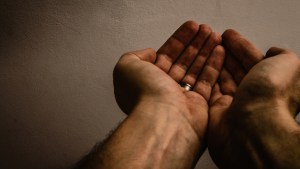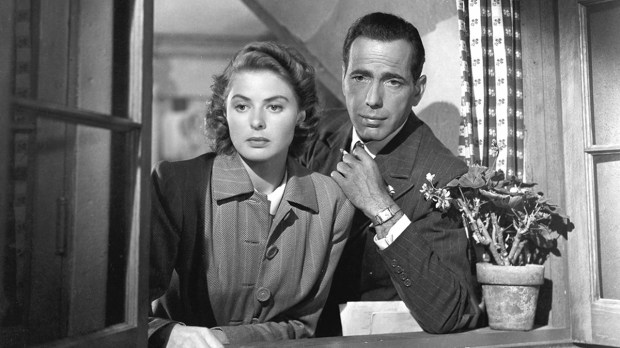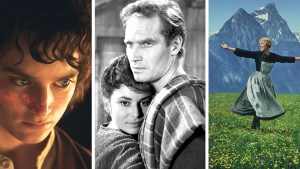Casablanca turned 80 years old this past week. It is often cited by critics as one of the best films ever made, and it is easy to see why: Witty dialog, humor, romance, action, Casablanca has it all. Yet what keeps Casablanca relevant after all these years is something that goes beyond its surface merits. At its heart, Casablanca is a film about virtue.
The word virtue is not one we hear often in popular culture these days. Most people either associate the word with faux gentility, or with people showing off their agreement with fashionable social causes via “virtue signaling.” But virtue is not about false displays of moral superiority. The Catechism says, “A virtue is an habitual and firm disposition to do the good.” Human beings are hard-wired to form habits. It is what allows us to do things like drive a car or speak our native language without thinking about it. We do things often enough, and they become second nature to us. They become a part of who we are. If those habits are good, they are called virtues. If they are bad, they are called vices.
At first glance, Casablanca seems more concerned with vice than virtue. Set during World War II in the Moroccan city that is its namesake, the film centers on Rick Blaine (Humphrey Bogart), an American who runs a bar and casino where an international clientele comes to make black market deals, gamble, and drink away their sorrows. Casablanca was controlled by Vichy, the so-called “free French,” who collaborated with the Nazis and were therefore under their thumb. People trying to escape the violence in Europe and Africa often found themselves stuck in Casablanca, waiting for exit visas that would never arrive.
Rick makes it clear that he is uninterested in the sob stories of those who come his way looking for help or a handout. “I stick my neck out for nobody,” he says more than once. When the Nazi Major Strasser (Conrad Veidt) asks Rick his nationality, he says, “I’m a drunkard.” This prompts his friend, the corrupt Vichy police chief Louis Renault, played by the inimitable Claude Rains, to quip, “That makes Rick a citizen of the world.” Rick boasts of having no convictions. When he learns that a famous Czech member of the underground resistance named Victor Laszlo (Paul Henreid) will be arriving in Casablanca, he bets Louis 10,000 francs that Laszlo will find a way to escape the city, but he later tells Major Strasser that his “interest in whether Victor Laszlo stays or goes is purely a sporting one.”
Even before the revelation that Laszlo’s wife is Ilsa Lund (Ingrid Bergman), Rick’s long lost love, there are signs that Rick may have been a different kind of man in the past. Louis accuses Rick of being a secret sentimentalist because of his history of fighting against fascism years earlier in Ethiopia and Spain. Rick assures Louis that those actions were all done for money. Rick projects an image of himself as an unfeeling, self-interested shark, yet that image falls to pieces once Ilsa is suddenly back in his life. Over and over, we see Rick performing small acts of kindness and courage. He refuses money from a German banker. After a young Bulgarian woman tells him she will have to give her body to Louis for a visa because she has no money, he rigs the roulette table so that her husband can win big. When Louis forces Rick to shut the doors of his bar for a time, Rick insists that every member of the staff be kept on the payroll.
In one of the most moving scenes in the film, a group of Nazi soldiers takes over the piano and begins loudly singing the German national anthem. Victor Laszlo quickly runs up to the house band and tells them, “Play La Marseillaise,” the national anthem of France and a song long associated with freedom and escape from tyranny. The band looks towards Rick for instruction, and he nods to them. In that brief gesture, he aligns himself with the cause of freedom, and shows both the virtues of justice and fortitude at work within him.
These small actions build upon each other. The more Rick does things that align him with what is good, the more he wants to be good. All of which culminates in the film’s climax–and yes, this is a little bit of a spoiler, but come on folks, you have had 80 years to see this thing–in which Rick shows that he loves Ilsa enough to make major sacrifices for her, including the sacrifice of letting her go.
Rick’s displays of virtue not only make him into a better person, but they also inspire virtue in those around him. His willingness to sacrifice for her gives Ilsa the strength to return to her husband and stand at his side. His protection of the Bulgarian couple inspires kindness and conscientiousness on the part of his employees. Even Louis, who acts with blatant self-centeredness for much of the film, finds himself in the end moved enough by Rick’s selflessness to protect him. In this way, Casablanca shows us how the building up of virtue in even the most unlikely of places can have a major impact on the world.
In our day and age, there are a lot of stories about heroes and even more about anti-heroes, but there are few stories about the slow, steady process by which the practice of virtue transforms us. Rick may not be a saint by the end of the film, but he is much closer to it than he was at the beginning. We are generally more cynical about our heroes today than we were in 1942, but we still long to hear this kind of story, because it is not only a story about what it takes to be good but what it takes to be happy.
From Aristotle to St. Thomas Aquinas, the great philosophers of virtue ethics have taught us that goodness and happiness are inseparable. Being good is not just about following some arbitrary set of rules. To be good is to be the best version of yourself, which means that being a good person will make you more deeply human. In the end, this is the only thing that makes us truly happy because it gives us a sense that our purpose is being fulfilled. The ultimate expression of both goodness and happiness is the theological virtue of love which can only be given as a gift from God. As Rick learns to love Ilsa, not just for what she can give him but for her own sake, he becomes paradoxically a better, happier person, despite the fact that he is embracing sacrifice and hardship in the process. Learning to love another person like that can only lead to learning to love God as well, the greatest source of goodness and happiness because He is the only one we love completely for His own sake and not for any other reason.
Tales of heroism that ignore virtue often disappear as quickly as they emerge, but a story of true virtue is a story for the ages. As long as there are sinners who long for the joy of the saints, there will always be a hunger for stories about virtue and sacrifice, and Casablanca will have a privileged place among them.



